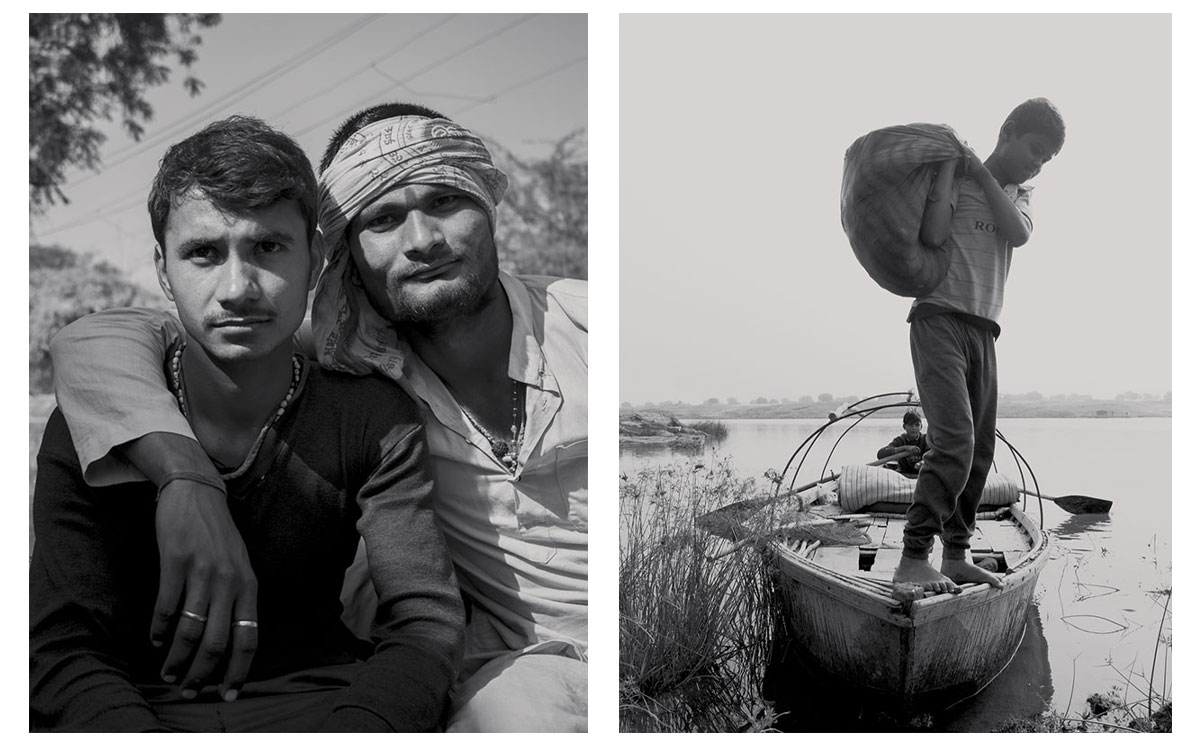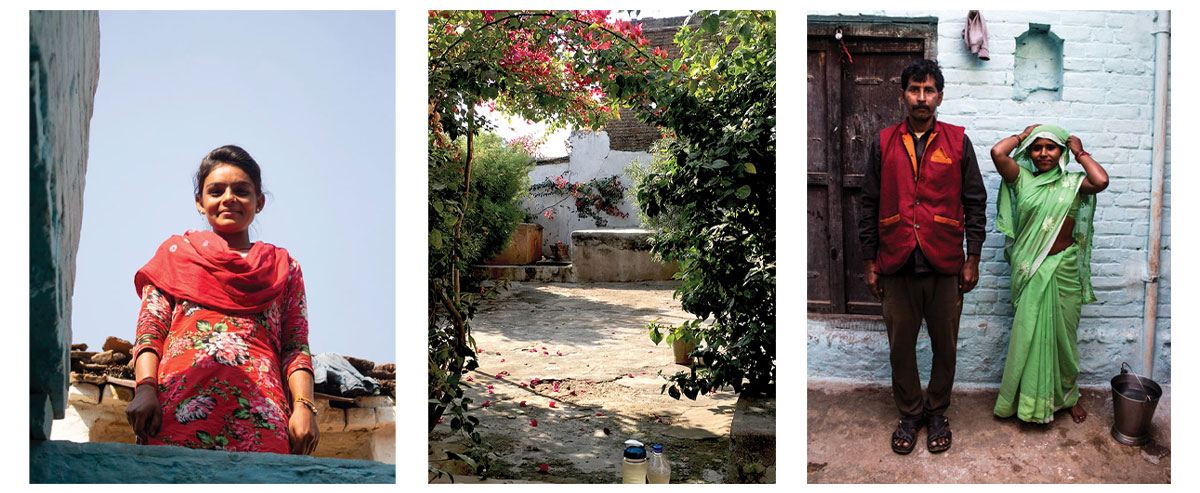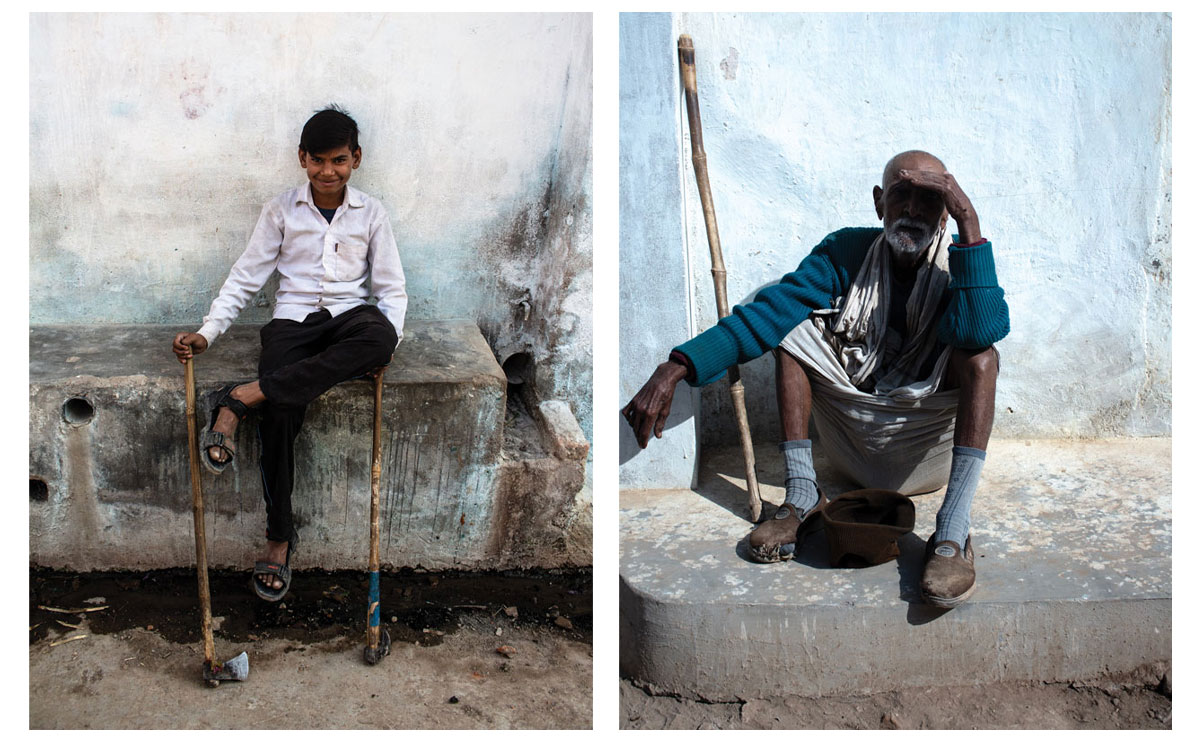


“By embarking on this walk, I hoped to learn about the importance of rivers in people’s lives and the differences in how people engaged with them. I was also eager to know what people thought about the controversial river-linking project, given the frequency of drought in Bundelkhand, and to gain a better understanding of the Betwa itself.” ~Radhika Singh
“To better understand what we were getting into, I read stories and watched short videos by Veditum and the Out of Eden Walk. My doubts about the journey faded as I grew more informed about Bundelkhand and its communities. It was only by slowing down and engaging with communities that we could really get a sense of the problems in the region.” ~Shail Joshi
The above are excerpted from the chapter, “Preparations,” in Along the Betwa by Radhika Singh and Shail Joshi, ORO Editions, 2021.
What surprised you most (or was the furthest from your imaginings) on your journey?
SJ: One thing that surprised me was how people dealt with trash collection in the absence of any public waste management. While most villages we visited were quite clean, upon further observation we realized that men were littering freely, even on the floors of their own houses, while the women would regularly go around cleaning everything they threw to the ground. Without having lived with the villagers, one would assume that the Swachh Bharat Campaign was having an impact on ground, but the dark reality is that, like many other issues in India, it has come as a heavy weight on the shoulders of women who often aren’t consulted but are expected to perform cleaning duties.
RS: We were very surprised by the amount of sand mining taking place during the walk, from small-scale extraction by families to serious excavation projects that filled up one truck after another with sand from the riverbed. Many people’s livelihoods in the region depended on sand mining, and through many conversations we realized that it was often an occupation people turned to in times of desperation and/or to supplement their meager agricultural earnings. Since large-scale sand mining seemed to benefit both the sellers from Bundelkhand and the buyers in big cities, there were few people who tried to stop it. The environmental consequences of sand mining, however, were becoming more and more apparent. The Betwa River’s banks were eroded, exacerbating water scarcity and destroying riverine ecosystems. Inevitably, this is eroding the very identity of Bundelkhand, a region historically dependent on and built around the river.
What did you learn about yourself that wasn’t expected?
SJ:
Growing up in Mumbai, I was surrounded with stories of migration to cities, with individuals and families building successful careers by sealing the numerous opportunities a city like Mumbai provided. My paternal and maternal grandparents, both, migrated to Mumbai from small towns in Gujarat within the first two decades after independence. The stories my brother and I heard since childhood were of their struggles and successes after their move to the city and their erstwhile home in the village was always portrayed as a bucolic landscape, free of stress and struggles. Engaging with rural landscapes, communities, and subject matter experts over the past decade – especially through this book – shattered that ‘bucolic’ image of rural lands in my mind and brought to the surface my own persistent disconnection with rural environments and the constant longing for the hyper-paced cityscapes with which I was more familiar.
RS: In MIT’s City Planning program, we were often taught that community-led, bottom-up approaches were the best way to tackle issues and leverage relevant opportunities. Trying to understand how this would work in Bundelkhand helped show me how Western-centric and historically-dependent this planning approach can be. With the numerous inequalities and nuanced differences between and within communities in Bundelkhand, it seemed like there needed to be a different way of approaching planning, particularly for devolution or decentralization processes. While working on our masters’ thesis, Shail and I tried to explore ways to supplement more bottom-up planning approaches with other approaches that could ensure acknowledgement and mitigation of socio-economic inequities. This led us down a path of trying to reimagine what water governance in more arid parts of rural India could look like if Bundelkhand were to become a state.
Are there any plans for future projects, either together or separate?
SJ + RS: Currently, we both are working on independent projects through our day jobs, and/or through numerous book-related engagements. We hope to continue engaging with audiences interested in learning about stories of communities and their lives in rural India. The aim of our ongoing projects is to provide individuals, families, and communities an entry point to talk about critical socio-political and environmental issues in small but meaningful conversations. We are currently exploring opportunities of collaboration with organizations such as the Indian Institute of Human Settlements (IIHS), and others across the world.












Copyright © 2022, PhotoSouthAsia. All Rights Reserved.
 Copyright © Radhika Singh & Shail Joshi
Copyright © Radhika Singh & Shail Joshi
Shail Joshi is a climate adaptation and resilience planner working on issues relating to climate change with low-income communities across the world. His work covers topics such as sustainable development, Nature Based Solutions, WASH, community engagement, and participatory planning, across several continents and countries such as Argentina, Bhutan, Ecuador, Kenya, India, and USA. Shail is an architect who also holds a Master in City Planning degree from Massachusetts Institute of Technology, Cambridge.
Instagram: @shailjoshi92
 Copyright © Radhika Singh & Shail Joshi
Copyright © Radhika Singh & Shail Joshi
Radhika Singh previously worked as a correspondent for the Indian Express in Mumbai and as a project manager at the research-advocacy organization INHAF in Ahmedabad before getting a master’s in urban planning at the Massachusetts Institute of Technology. She is currently based in Nairobi, Kenya, where she carries out research on adoption patterns in smallholder irrigation technology, particularly in semi-arid areas, on an EU-funded fellowship.
Instagram: @rsingh10220
Also find Along the Betwa and the authors under the Books tab of PhotoSouthAsia.
Instagram: Along.the.betwa
20 November